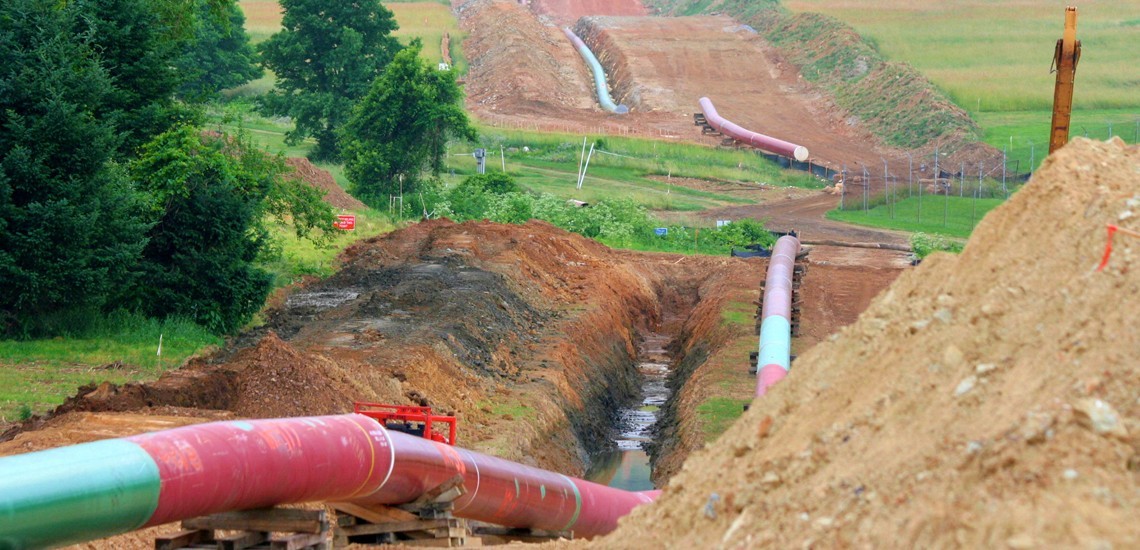Yesterday evening, FERC held a meeting in Jackson’s Mill, West Virginia, to take comments from the public on the proposed Mountain Valley Pipeline. We were unable to attend, but Roger Adkins from the Intermountain wrote an excellent article.
The Mountain Valley Pipeline is going to have environmental impacts, including water quality, erosion issues, safety, and the beauty of the property that it crosses. Some of the impacts will be short-term, others will be generational. Water and erosion impacts will exist mainly during the construction and reclamation process. Trees will be cut down, trenches dug and refilled, and rights of way maintained so that only grass and small bushes can grow there. All of those things will affect water runoff, surface water quality, and stream water quality. Safety and beauty will be factors for as long as the pipeline is there. A 42-inch pipe represents a huge risk if an explosion occurs. Pipelines don’t explode often, but when they do, it’s catastrophic. I wouldn’t want to be within 1000 feet of one if it exploded, or even if it developed a small leak. The right of way is going to be maintained in a constant state of clear cut, in part to help avoid the risk of leaking and explosion, but it will be an obviously man-made scar on the natural, wild beauty of the West Virginia mountains. The right of way will exist for as long as there is gas to transport, which is likely to be for generations.
On the other hand, the Mountain Valley Pipeline is also going to have economic impacts, and they will be enormous. Right now there is more gas in the Marcellus/Utica region than existing pipelines can handle. Wells are shut-in because producers can’t get a good price for the gas, in part because the transportation cost is so high ($1/MCF) because the demand for transportation service is so high. Demand for gas is growing, and will continue to grow, but our ability to transport it is limited. We really need this and other big pipeline projects for gas development. As pipeline projects are completed, the cost of transportation will go down, and more gas will flow out of the ground, allowing for more royalties to be paid. The money that comes into the state from this pipeline will benefit everyone indirectly.
Indirect benefits don’t get people excited, though. West Virginians would be more excited about this project if more of them could look into the future and expect to be paid royalties. Unfortunately, many West Virginia oil and gas rights are tied up in heirships, and those heirs are scattered around the United States. The huge majority of them have no idea that they own oil and gas rights in West Virginia, and only own a tiny fraction of an oil and gas right. West Virginia needs a Dormant Minerals Act, but that is a subject for a separate post. The point is that not enough West Virginian’s are going to directly benefit from this pipeline project. Surface owners will be compensated for disturbance to their property, but neighbors and communities won’t see direct benefits. They will be able to see the gap in the trees going across hilltops and hollers.
We supporte these big pipeline projects, but we also think it’s important to know what all the consequences and impacts are going to be. Forewarned is forearmed.

